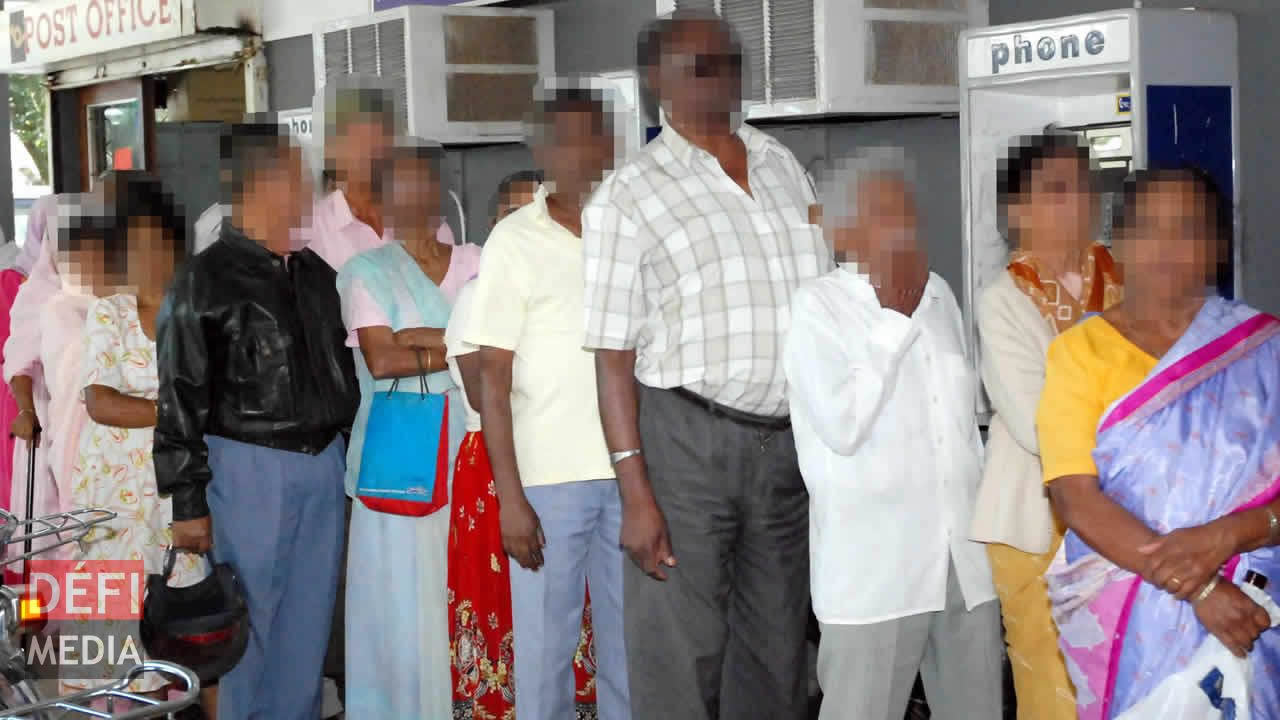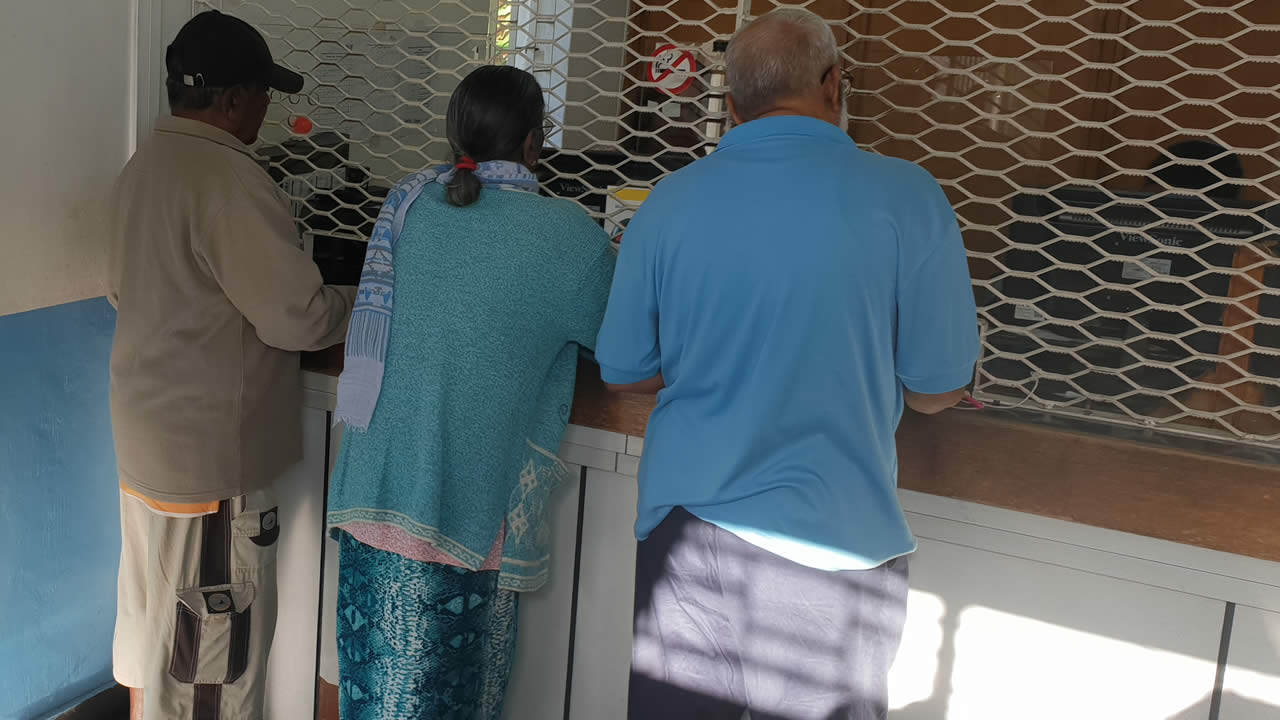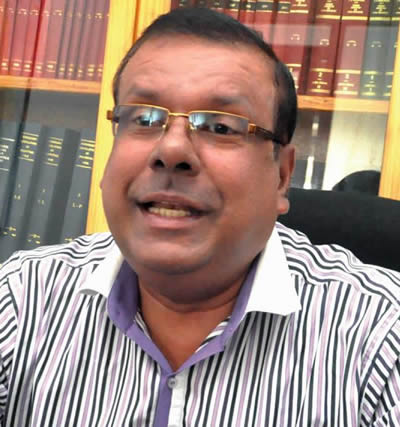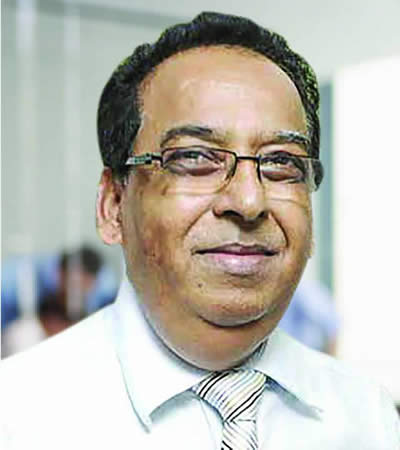
A further increase in the old-age pension is on the cards. The Prime Minister himself announced it last week on the occasion of the International Day of Older Persons. If the news has been favourably welcomed by senior citizens, it has also triggered debates and raised questions: When? At what rate? Can the economy sustain it?
Will the announced increase in the old age pension take place in 2019? Or will it be a new promise for the next election? And what will be the quantum? While no detail has been revealed yet, the fact remains that the retirement pension will definitely be substantially revalued.
Considered as a powerful electoral weapon, the old-age pension has always weighed heavily in electoral campaigns, regardless of its impact on the public purse. The old-age pension has seen an exponential rise over the past two decades, from Rs 675 in 1995 to Rs 5,000 in 2015. Today, with the cumulative compensation of recent years, a retired person earns a minimum of Rs 5,810 monthly. The number of beneficiaries is now more than 216,000 while the budget for the payment of the old age pension is close to Rs 17 billion and will, at he current rate, reach as much as Rs 21 billion in 2020. A hike of only Rs 1,000 per month will require an estimated additional budget of at least Rs 3 billion per year.
With the onset of an ageing population in Mauritius, in 20 years, the number of pension beneficiaries will reach about 315,000 while in 2057 the number is estimated at more than 341,000. On the other hand, the active population in the age group of 15 to 64 will experience a sharp decline, from 870,434 in 2017 to 587,244 in 2057. In other words, while in 2017 there were 4.3 active persons to support every elderly, this rate will fall to 2.4 persons for each retiree in 2037 and 1.7 for each senior citizen in 2057!
The pension at Rs 8,000?
Economic impact will be felt at several levels, depending on the quantum of increase. While some economists are of the opinion that the economy cannot support a substantial increase, others maintain that the state can easily set the new pension figure to at least Rs 8,000 monthly. They say this is possible if we manage to review public expenditure, eliminate waste and unnecessary expenses and increase efficiency. The positive side is that a significant increase in the pension will boost the purchasing power and well-being of the elderly, and creates demand that will further stimulate the economy. Thus, economic activities benefit directly, with jobs created for others. But in our context, with a shrinking labour force in the coming decades, there will be fewer people to work, consume and pay tax, which will have a major impact on state revenues. Secondly, an ageing population means a larger budget for the health sector. As the country aims to become a high-income nation, this ambition could be compromised. However, on the other side of the same coin, with declining birth rate and smaller school population, there is a lower budget for expenditure on the youth, which means the savings could be used on more elderly spending.

And if the economy becomes more open to the outside world, as has been the trend lately, and if there is a major influx of foreign workers to keep the economy going, then the dependency ratio will decrease and growth will stay on course.
The pension protest
Members of the civil group “Plateforme des Citoyens Engagés” held a demonstration in front of the National Assembly on Wednesday to demand a minimum old age pension of Rs 10,000. According to them, the current amount of Rs 5,810 is hardly sufficient to lead a decent life and they are asking for the government to raise the pension to at least Rs 10,000.
 Veda Baloomoody : “Pensioners’ welfare not limited to finance”
Veda Baloomoody : “Pensioners’ welfare not limited to finance”
MP Veda Baloomoody welcomes the announcement of a future pension hike because he believes pensioners definitely deserve a good pension.
However, he argues that the well being of senior citizens is not limited to the financial aspect only. “Senior citizens need a decent pension because cost of living is rising, but they also need proper care and security,” says the Member of Parliament.
He states that there is no control on the price of medicines, on which pensioners spend a large proportion of their income. He adds that many pensioners are subject to income tax, which is unfair. He also believes mostly pensioners are victims of crime and violence and nothing is being done to protect our elders. “The government should enhance the living environment of senior citizens and improve safety, among others.”
 Azad Jeetun : “Either we cut down expenses, or we increase taxes”
Azad Jeetun : “Either we cut down expenses, or we increase taxes”
Contacted by News on Sunday for his views following the announcement by the Prime Minister that the old-age pension will rise soon, Azad Jeetun, economist and former director of the Mauritius Employers Federation (MEF) believes it is completely normal that the pension increases every year, as this has always been the case, regardless of the government in place. “Every year, the pension is adjusted in relation to inflation, and it is quite normal for it to rise again," says the economist, adding that the Prime Minister has not specified by how much the pension will increase. “If it's a routine increase, it will have no major effect on the economy.
However, if the increase is substantial, then there will be a definite impact on the economy,” explains Azad Jeetun. According to him, a significant hike will delight all pensioners who deserve a good increase because the current amount of Rs 5,810 is insufficient to make ends meet. But we must see how to finance the increase because the annual budget is already in deficit. We cannot worsen the budget deficit.
How then do we fix any additional deficit? “Either we reduce certain expenses, or we increase taxes. The state must necessarily generate more revenue to pay more benefits,” says the economist.
He stresses that any increase in the pension is not a one-off occurrence but a cumulative expense and must be paid over several years. "The quantitative effect is huge. But without higher growth, it will be difficult.” He recalls that our growth rate has not been able to exceed 4% in recent years, and it is imperative that we tackle the fundamental economic problems to be able to boost growth in order to make the pension sustainable, especially in the context of the ageing of the Mauritian population.
 Pierre Dinan : “The government has a choice to make”
Pierre Dinan : “The government has a choice to make”
Economist Pierre Dinan believes that every government has a choice to make. To finance an increase in the pension, it can either raise taxes to generate more income, or reduce some expenses, or increase the budget deficit. “The increase in the pension must be financed from the annual budget, and any deficit must be financed by a loan.
If the public debt rises, in addition to the repayment, there is also interest to pay,” says the economist. Pierre Dinan argues that, regardless of the increase in the pension, the overall pension budget will increase in the coming years because of a rise in the number of beneficiaries. He concludes that the Prime Minister seems to have in mind a substantial increase in the pension, and not the annual inflation-linked rise.
 J'aime
J'aime













